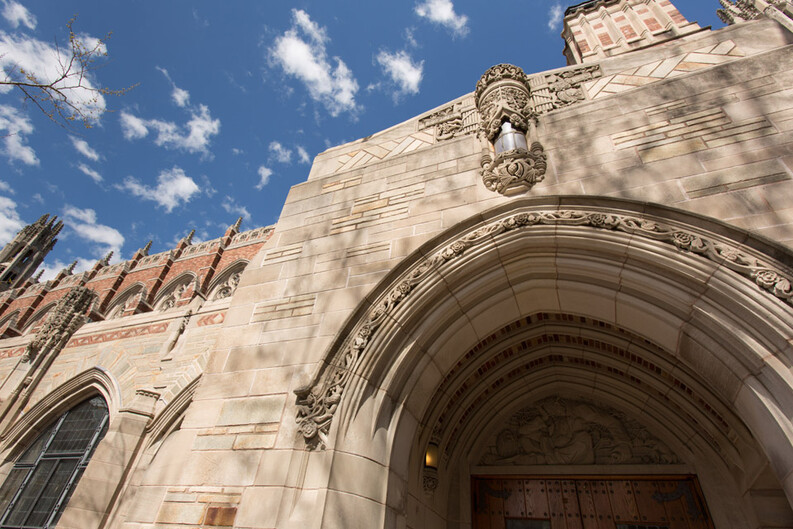Education Clinic Hits Setback, Vows to Bring Fight to the Legislature

On February 1, 2018, the long-running education adequacy case Connecticut Coalition for Justice in Education Funding (CCJEF) v. Rell II came to a close in the Connecticut Supreme Court. In a brief order, the Court denied the motion for reconsideration that the coalition — with the help of students and faculty from the Education Adequacy Project Clinic (EAP) at Yale Law School — had filed in response to the closely divided Court’s reversal of the clinic’s 2016 trial court victory. The EAP clinic has represented CCJEF since 2003 and had prepared clinical professor Joseph Moodhe for the oral argument last September.
“The Court’s ruling means that the fight to provide every Connecticut child with the education that is their right will first be won in the legislature, not the judiciary,” said Sesenu Woldemariam '19, one of the clinic’s student directors.
In a narrow reading of the fundamental right to an education guaranteed under the state constitution, a bare majority of the Court’s seven justices observed that it is not the judiciary’s role to “eliminate all of the societal deficiencies that continue to frustrate the state’s educational efforts.” From this premise, the majority concluded that the state is not constitutionally obligated to provide additional support to children who have needs arising from economic disadvantage, a native tongue other than English, or other external factors affecting their learning.
Siding with the clinic, Justice Richard Palmer issued a blistering dissent on behalf of three members of the Court. Taking a broader view of the state’s constitutional duty to help children struggling with poverty or other disadvantages, Justice Palmer argued that the state has an obligation to ensure that children “are not so preoccupied by hunger, fear for their personal safety, or other serious distractions as to render learning effectively impossible.” Much of Justice Palmer’s dissent was dedicated to explaining the many ways in which the CCJEF II majority misinterpreted his prior controlling CCJEF I concurrence.
The coalition’s motion for reconsideration drew on the facts proven at trial but largely ignored by the majority. Looking to crumbling classrooms, outdated textbooks, and overwhelmed teachers in towns such as Bridgeport, New Britain, and Windham, the coalition argued that review could not plausibly result in a finding that the state was fulfilling its obligations to its most vulnerable children. With a single sentence, however, the Supreme Court rejected this request.
Yet, as Attorney General George Jepsen, whose office represented the state in CCJEF, conceded, “The trial court’s ruling in this case did identify profound educational challenges that deserve continuing significant and sustained action on the part of our state’s policymakers.” Though the CCJEF litigation has now concluded, the coalition’s legislative and executive advocacy continues.
The Supreme Court’s decision comes at a crucial juncture. With fewer than one in ten Bridgeport students achieving academic results showing college or career readiness, and similar outcomes persisting across Connecticut’s low-wealth towns, the Connecticut General Assembly has begun to adjust the state’s education cost-sharing formula and established a new Connecticut Achievement and Resource Equity in Schools Commission to propose further necessary reforms, according to the clinic.
These measures align with recommendations presented by EAP to the legislature’s Education Committee last March. In their well-received testimony, students from the clinic cited findings from the CCJEF trial record as well as case studies from other states to urge legislators to conduct a rigorous, evidence-based cost study that would answer the fundamental question of how much it costs to educate a child in Connecticut.
With the 2018 elections quickly approaching and the state’s vast achievement gap expected to be a major theme, EAP student director Matt Nguyen ‘19 emphasized, “Now more than ever, we must hold our state leaders accountable, and ensure they take seriously their constitutional duty to educate all children.” In partnership with the coalition, the clinic vowed to continue leading education reform efforts to vindicate the rights of Connecticut’s children, families, and communities.


